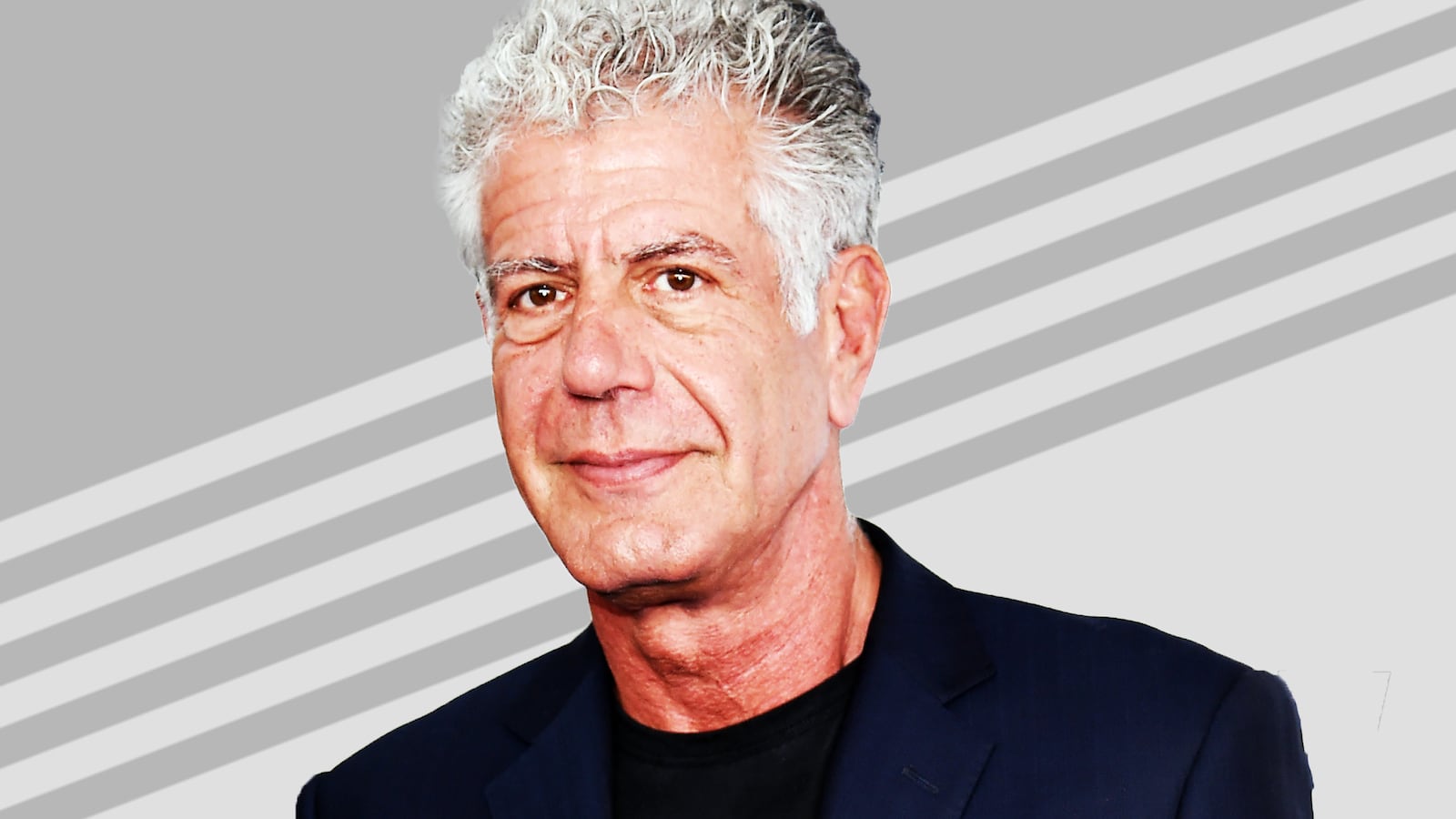“Just shut up.” That’s the advice chef-turned-TV host Anthony Bourdain would like to give to Alec Baldwin, who can’t seem to stop weighing in on the #MeToo movement.
The first of Baldwin’s many boneheaded comments on the subject came during an interview late last year with PBS Newshour wherein the 30 Rock star criticized Rose McGowan for settling with her accused rapist, Harvey Weinstein. Asia Argento, an actress and filmmaker who’s also bravely come forward to accuse the powerful movie mogul of sexual assault, took issue with Baldwin’s callous statement, calling him out on Twitter. The quick-tempered Baldwin responded by laying into an alleged rape victim—“If you paint every man w the same brush, you’re gonna run out of paint or men @AsiaArgento”—before blocking her.
So Bourdain, who is Argento’s partner, fired back with an online jab of his own:
The 61-year-old Bourdain speaks tenderly about Argento, whom he met while filming his CNN show Parts Unknown, explaining how being around a woman of her considerable courage and conviction has caused the former bad-boy chef to re-examine his life. He’s since emerged as a shining example of male allyship.
“When someone you care about and respect, you see them struggle to go on the record—the incredible difficulty of going public about something, and the very real peril at the time—it changes you,” Bourdain tells me. “When Asia spoke to Ronan [Farrow], I think she might have been the first to go on record knowing with absolute certainty that she would most likely be sued, destroyed, crushed by this gigantic machine that had for decades been crushing far more powerful people than her who dared speak up. But she did it anyway. So to see that, and to see the blowback in Italy where she’s received no support, has been eye-opening.”
Argento recently addressed the outrageous backlash she’s received in Italy since coming forward at the Women in the World Conference in New York. “There are lots of predators, but the [victims] see me being called a whore, traitor or prostitute for speaking out so they keep quiet,” she told moderator Ronan Farrow, who was recently awarded a Pulitzer for bringing Argento’s and other women’s allegations against Weinstein to light in The New Yorker.
“As importantly,” Bourdain continues, “the other women that started talking to Asia—sometimes in my presence—I started hearing a lot of things and seeing a lot of things that I had been blind to before, and had not heard before. I would love to tell you that I had all along been enlightened, but I was not. It was personal, it was emotional, and it was life-changing. I can only say that I’m honored and grateful to learn and be inspired by these women.”
In late November, shortly after the sexual-assault allegations against Weinstein came to light, Bourdain cooked a meal for three of Weinstein’s accusers—Argento, McGowan, and Annabella Sciorra—memorializing the occasion on social media:
But Bourdain says he’s been very reluctant to discuss the #MeToo movement because, unlike Baldwin, he does not wish to take attention away from the numerous women who’ve risked their careers in pursuit of justice.
“It’s something I’m very aware of when I hear myself talking about it—it makes me very uneasy,” he says. “These are not my stories, so I feel that every time I’m talking about it I’m taking up space that should be rightfully taken by a woman. It’s a fine line for me. I don’t particularly enjoy talking about it. But if you ask me, I’ll tell ya.”
In addition to Hollywood, the #MeToo movement has had a considerable impact on the male-dominated restaurant industry, where several chefs and restaurants have been embroiled in scandal—none more famous than chef/TV personality/restaurateur Mario Batali, whose “apology” for sexually harassing women included a recipe for cinnamon rolls (really).
“I’ve been out of the industry for a really long time,” says Bourdain, “but I’ll say this: it is not a bad thing that a lot of male chefs are frightened; that a lot of restaurant groups now have to, for reasons of self-interest, take a very hard look at how they’re doing business, how they’re reacting, and their ability to react to complaints of workplace harassment or worse.”
“I would hope that Mario [Batali] is a cautionary tale,” he adds. “To see an empire that big come crashing down—a figure that respected and that accomplished, to have that status evaporate overnight—I would hope that that sends a clear message that no matter who you are and how beloved you think you are, some shit just ain’t acceptable and you’re not going to get away with it.”
Bourdain’s Parts Unknown returns for its 11th season April 29 on CNN. Stay tuned for a longer feature on the show—and its outstanding premiere episode—on Monday.






